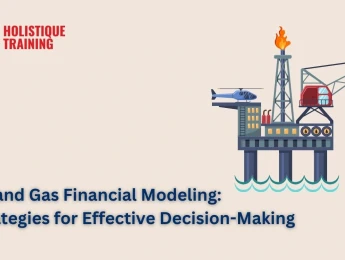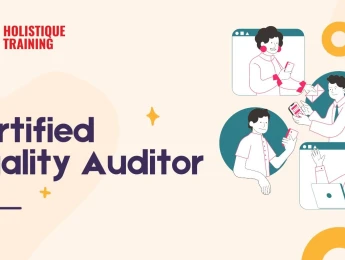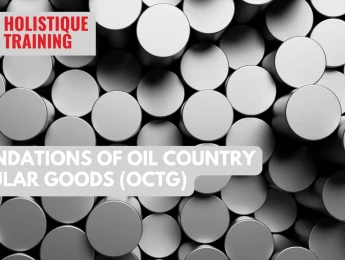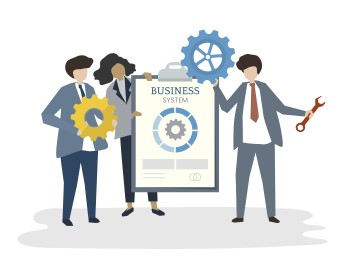Quality standards within energy companies and their oil and gas discovery processes are paramount for energy-efficient, more environmentally friendly, and safe sales. For this reason, it’s important to understand how to accurately audit and risk assess your own organisation and benchmark against industry standards to ensure you are maintaining standards and making the right strategic decisions to move forward.
Working within an oil or gas provision company requires you to gain essential knowledge regarding the ISO standards on quality, environmental maintenance, and occupational health and safety to ensure you are meeting your legal responsibilities and appropriate management safety standards to maintain a quality service.
It’s important to understand how to audit and evaluate your own organisation to make changes that work towards continuous improvement and increased productivity. This ensures employee safety and environmentally focused practices and lays the groundwork for process reviews to develop a company’s opportunity to make more profit.
Upon completion of this course, participants will be able to:
- Develop a deeper understanding of ISO guidelines for gas and oil discovery, distribution, and sales.
- Plan and execute audits of your business practices to work towards continuous improvement.
- Assess risks and develop plans to mitigate future issues.
- Create contingency plans for failures to ensure the stability of a safe working environment.
- Develop forecasting models to future-proof your organisation.
- Understand the implications of non-adherence to ISO standards for the safety of your employees, customers, and the wider environment.
- Make strategic plans for company improvement from audit results to improve profitability.
This course is great for anyone within a management or change and control position within the energy and fuel industry who wishes to tighten their processes to meet ISO standards and create wider profit margins. However, it would be most beneficial for:
- Senior Managers
- Operations Managers
- Quality Assurance Officers
- Health & Safety Personnel
- Risk Assessors
- Purchasing Managers
- Change & Control Managers
This course uses various adult learning techniques, including trainer-led seminars on the importance of quality standards, practical exercises in the form of group discussions, and planning trees to understand how individual organisations could benefit from innovative change and regular audits.
Each participant will leave with a greater knowledge of planning procedural change and an understanding of the auditing process to aid internal risk assessments and operational performance reviews.
Day 5 of each course is reserved for a Q&A session, which may occur off-site. For 10-day courses, this also applies to day 10
Section 1: Quality Management Auditing
- Audit planning and understanding ISO 9001, ISO 14001, and ISO 45001.
- Your biggest business risk areas.
- Management system audits and newest technology requirements.
- QMS 29001:2010, 9001:2015 ISO quality standards.
- System requirements and levels of QMS.
- Roles and responsibilities.
- Terminology and definitions.
Section 2: Preparation & Setup of Conclusive Audits
- Types of audits, their concepts, and principles.
- Conducting an audit. What to look out for.
- Your walkthrough, planning, and procedure.
- Note-taking and auditing employees.
- Internal vs. external auditing. The benefits and pitfalls of each.
Section 3: Internal Auditing Processes
- The creation of a process document.
- Documentation and paper-based requirements.
- An effective checklist.
- How to communicate your audit process to your employees.
- Conducting a site inspection comfortably.
- Drawing conclusions from an audit.
- Handling pushback and concerns.
- Interviews or discussions with essential employees.
Section 4: Addressing Quality Assurance Issues
- What does quality mean to your business?
- Quality assurance best practice.
- Dealing with supply chain quality performance.
- Review of current policies and practices.
Section 5: Improving Operational Performance
- Risk assessment areas and improving performance.
- Observations and assessing priorities.
- Performance management procedures and how to handle underperformance.
- Setting realistic goals and SMART targets.
Section 6: Understanding Environmental Performance Issues
- How does your business affect the environment?
- Largest pain point areas and how to mitigate the effects.
- Forecasting potential issues.
- Monitoring downturns and corrections.
- Planning for the future.
Section 7: Health & Safety Standards Adherence
- Health and safety training and adherence.
- First raiders and fire wardens.
- When accidents occur and how to prevent them.
- Recording incidents for future learning.
- Performance monitoring and upkeep of policies.
Section 8: Reporting & Review
- Keeping accurate documentation for quality management auditing.
- Assessing the best organisational improvement techniques.
- Documenting issues with quality and performance.
- Your corrective action plan.
- Presentation and delegation of future responsibilities.
- Review of internal and external audit processes.
Upon successful completion of this training course, delegates will be awarded a Holistique Training Certificate of Completion. For those who attend and complete the online training course, a Holistique Training e-Certificate will be provided.
Holistique Training Certificates are accredited by the British Assessment Council (BAC) and The CPD Certification Service (CPD), and are certified under ISO 9001, ISO 21001, and ISO 29993 standards.
CPD credits for this course are granted by our Certificates and will be reflected on the Holistique Training Certificate of Completion. In accordance with the standards of The CPD Certification Service, one CPD credit is awarded per hour of course attendance. A maximum of 50 CPD credits can be claimed for any single course we currently offer.
- Course Code IND01-109
- Course Format Classroom,
- Duration 5 days














